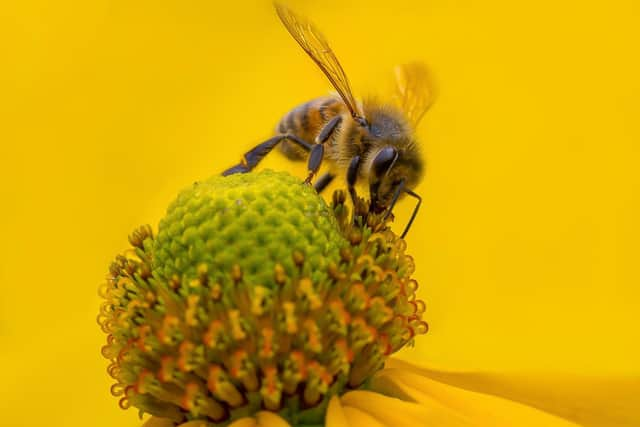Northamptonshire's Wildlife Trust appeals for help in protecting our VIBs (Very Important Bugs)
and live on Freeview channel 276
As pollinators from bees to butterflies face a catastrophic decline, the Wildlife Trust in Northamptonshire is urging people to take action to help.
Worrying evidence suggests that an abundance of insects may have fallen by 50 per cent or more since 1970.
Advertisement
Hide AdAdvertisement
Hide Ad405 invertebrates are classified at risk of extinction from Great Britain.


This is a devastating loss and their decline could have profound consequences for both nature and human well-being.
Habitat loss and chronic exposure to pesticides are the two major causes of insect decline.
Since 1930 it is estimated that in the UK 150,000 miles of hedgerow, 97 per cent of wildflower meadows and 50 per cent of ancient woodlands have been lost.
Advertisement
Hide AdAdvertisement
Hide AdTraditional mixed family farms have given way to large arable agribusinesses.
The result is a landscape that produces more food cheaply, but the heavy use of pesticides and fertilisers is largely inhospitable to wildlife.
Defra figures show that the total area of crops treated with pesticides in the UK has approximately doubled between 1990 and 2015 to some 80,000,000 hectares: nearly 17,000 tons of chemicals are broadcast across our landscape every year.
In light of these worrying figures, the county branch of the Wildlife Trust has suggested a number of ways in which people can help look after our VIBs (Very Important Bugs).
These include:
- Don’t use pesticides in gardens
- Lobby your MP to press for a strong Environment Act
Advertisement
Hide AdAdvertisement
Hide Ad- Help look after our wildflower meadows and other places important for insects
- Grow plants that are rich in nectar and pollen for bees, butterflies and hoverflies
For more information go to https://www.wildlifebcn.org/VIB